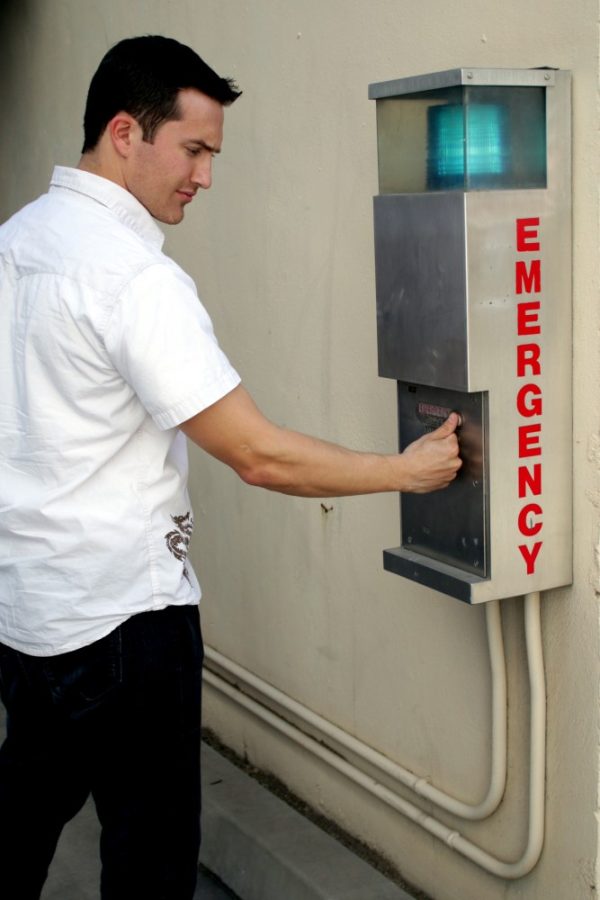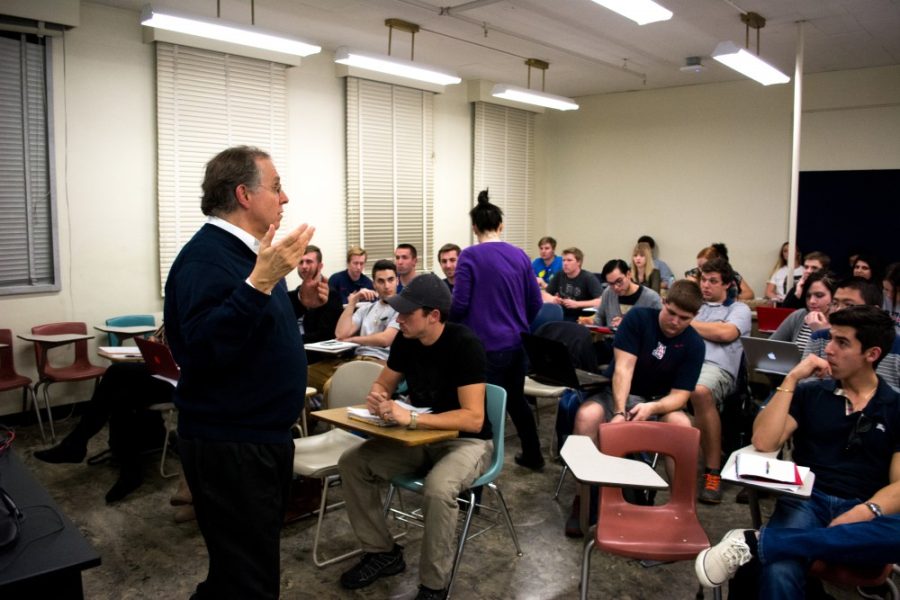Years after its creation, the “Step UP! Bystander Intervention Program” is used by over 600 schools and organizations across the nation.
The program was created by UA Associate Athletics Director Becky Bell, who is also the director of the Commitment to an Athlete’s Total Success, or CATS, life skills program.
“Many of the problems we see are preventable with bystander intervention. It’s really that simple,” Bell said.
This program was the first of its kind to address multiple topics in an interdisciplinary way, providing a foundation and general approach to bystander intervention for multiple topics, according to Bell.
The program covers topics like academics, alcohol and alcohol poisoning, anger, discrimination, relationship abuse, sexual assault and many others.
Bell, who got her inspiration from a sexual assault bystander prevention program in 2006, launched the program two years later in 2008 and has since received awards for its success.
The program, which first started to other areas of campus such as Greek Life and residence life, then to other schools and organizations nationally, including the NCAA and Pac-12 Conference.
“Focusing on pro-social behavior and educating students to be proactive in intervening when seeing a problem is important to every single person on campus,” Bell said.
Associated Students of the University of Arizona Administrative Vice President and “I Will” co-director Tatum Hammond said this is a good way to prevent things from going awry.
“So many times horrible situations can be prevented and it’s just a matter of identifying a problematic circumstance and approaching it in a tactful way,” Hammond said.
She said Students Promoting Empowerment and Consent, or SPEAC, taught a “Step UP! Bystander Intervention Program” during the week of the “I Will” campaign on campus at the beginning of the month. She knows many students who are working on getting the program and its efforts incorporated into the UA’s new student orientation, which would give them a chance to educate more students.
Almost every student athlete goes through the program and multiple programs across campus have adopted the program for their own demographics, according to Bell.
Bell said there is one program, so all the topics are under one umbrella. Each group can take that information and see how it applies to them and their demographic.
“I think that whatever the demographic, the main question is still, what can we do to help?,’” Bell said.
Nick Taras, coordinator for Sexual Assault and Violence Prevention Programming, said the program makes everyone more aware of their surroundings and more aware of others’ behavior.
As more students become involved with bystander intervention, the community becomes safer for everyone, according to Taras.
For Taras, programs like this give students a broadened sense of behavior and individuals’ permission to intervene.
Bell said she thinks if we all take a little more responsibility and understand that the smallest of actions can make a big difference, things will change.
“We want to have a safe and healthy environment and culture, and have a community where we care about each other and look after each other,” Bell said. “If we notice a problem we need to step up and do something. This is our [UA] family. Let’s take care of each other.”
Follow Chastity Laskey on Twitter.









